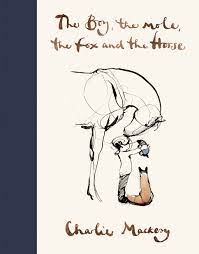The Gustav Sonata
 By: Rose Tremain
By: Rose TremainLocation: FIC TRE
Genre; Historical Fiction
What is the difference between friendship and love? Or between neutrality and commitment?
Fierce, astringent, profoundly tender, Rose Tremain’s beautifully orchestrated novel asks the question, what does it do to a person, or to a country, to pursue an eternal quest for neutrality, and self-mastery, while all life's hopes and passions continually press upon the borders and beat upon the gate.
"The Gustav Sonata is a novel about lives lived in the past, present, and future. The book follows the structure of a classical music sonata:
The basic elements of sonata form are three:
exposition, development, and recapitulation, in which the musical
subject matter is stated, explored or expanded, and restated.
In Part One, we meet Gustav in 1947. He is a quiet kindergarten boy living in Matzlingen, a small municipality, in Switzerland. Next comes Anton, a new classmate from Bern. Anton has trouble coping with the move but his good fortune in life is meeting Gustav, a child with an eternal capacity for giving friendship, caring, and compassion. Hans is a piano prodigy and his gift will affect the lives of many during the course of the novel.
Part Two goes back to 1937, when Gustav’s mother, Emilie, was a twenty-year-old woman spending an afternoon at an outdoor festival celebrating, Swiss National Day. It is there that she meets Gustav’s father, Erich Perle. Their story becomes intertwined and we witness great love and joy and, sadly, heartbreaking times. It is the beginning of WWII and Switzerland is in a unique, yet perilous, position as a neutral country. This neutrality seeps through the adult characters and down to the children. The Swiss interpret their neutrality with a striving to cultivate and maintain superior character traits, trying to remain master over emotions and feelings, always underplaying the disappointments, the heartaches. Strive to be better. Pray that Hitler will not invade. Not all the characters are capable of these superhuman traits and it is in those times that Rose Tremain brilliantly displays her craft of giving life to the characters, they come off the page and feel as if they are living human beings. I would love to be able to meet Gustav, in all the times of his life. He holds a place in my heart.
Part Three brilliantly mixes the generations of characters together in a way that gives the plot its resolution and also offers surprises to what we might assume happened to all of Gustav and Hans’ families. The book as a whole is one that I would love to read again. I cannot recommend this book enough. It is a treasure." Review by Liz from Goodreads.com



Comments
Post a Comment